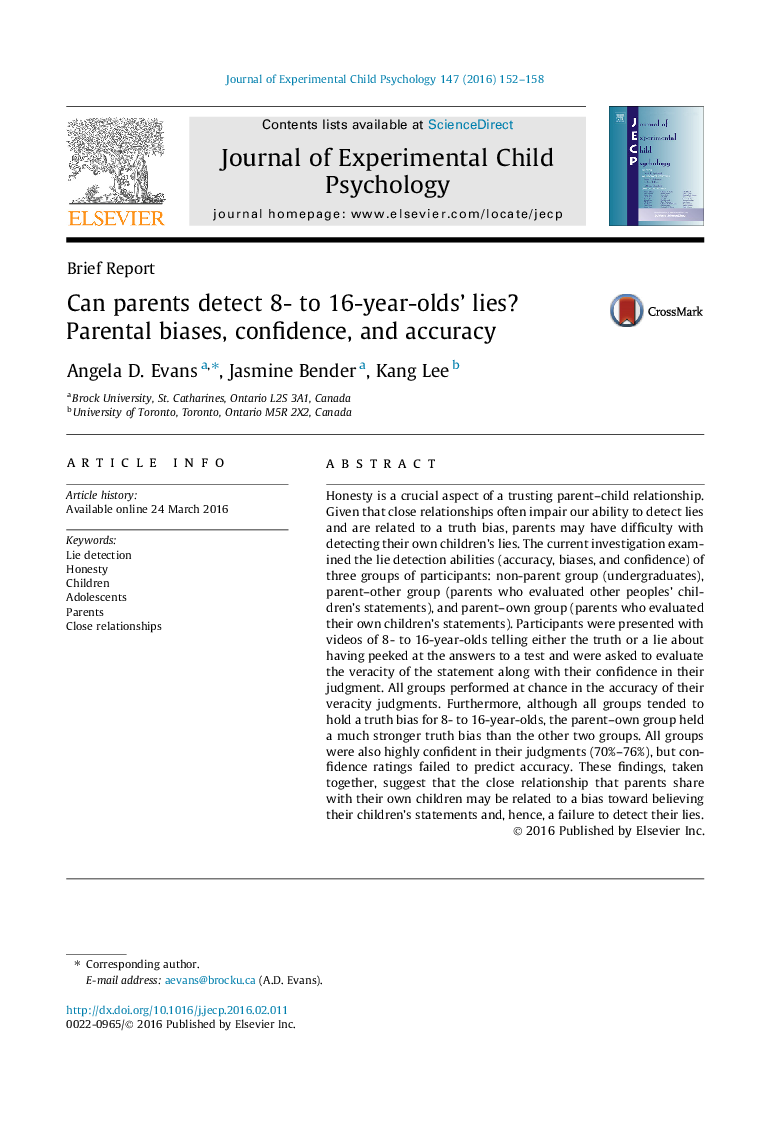| Article ID | Journal | Published Year | Pages | File Type |
|---|---|---|---|---|
| 917902 | Journal of Experimental Child Psychology | 2016 | 7 Pages |
•We examined parents’ ability to detect their own compared to other children’s lies.•All groups were at chance at detecting lies.•All groups held a truth-bias towards believing 8- to 16-year-olds statements.•Parents held a stronger truth-bias for their own children.•All groups were highly confident in their judgments.
Honesty is a crucial aspect of a trusting parent–child relationship. Given that close relationships often impair our ability to detect lies and are related to a truth bias, parents may have difficulty with detecting their own children’s lies. The current investigation examined the lie detection abilities (accuracy, biases, and confidence) of three groups of participants: non-parent group (undergraduates), parent–other group (parents who evaluated other peoples' children’s statements), and parent–own group (parents who evaluated their own children’s statements). Participants were presented with videos of 8- to 16-year-olds telling either the truth or a lie about having peeked at the answers to a test and were asked to evaluate the veracity of the statement along with their confidence in their judgment. All groups performed at chance in the accuracy of their veracity judgments. Furthermore, although all groups tended to hold a truth bias for 8- to 16-year-olds, the parent–own group held a much stronger truth bias than the other two groups. All groups were also highly confident in their judgments (70%–76%), but confidence ratings failed to predict accuracy. These findings, taken together, suggest that the close relationship that parents share with their own children may be related to a bias toward believing their children’s statements and, hence, a failure to detect their lies.
